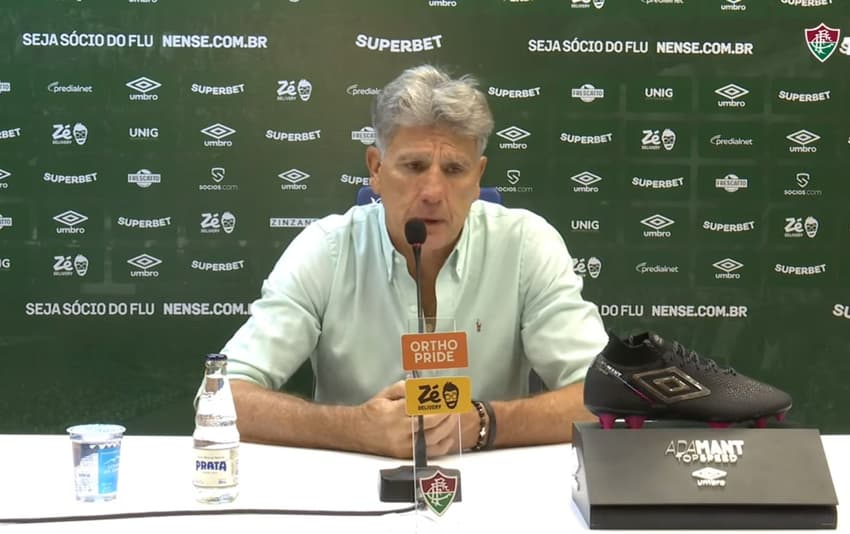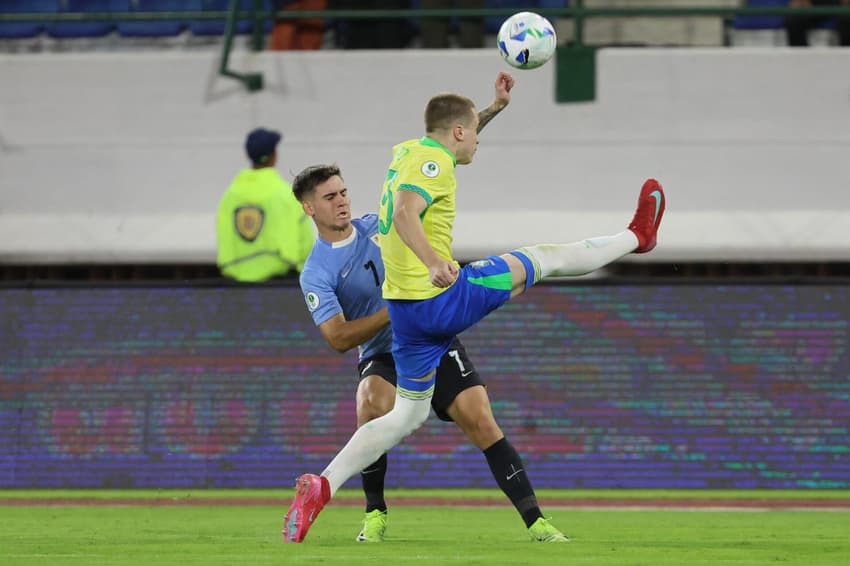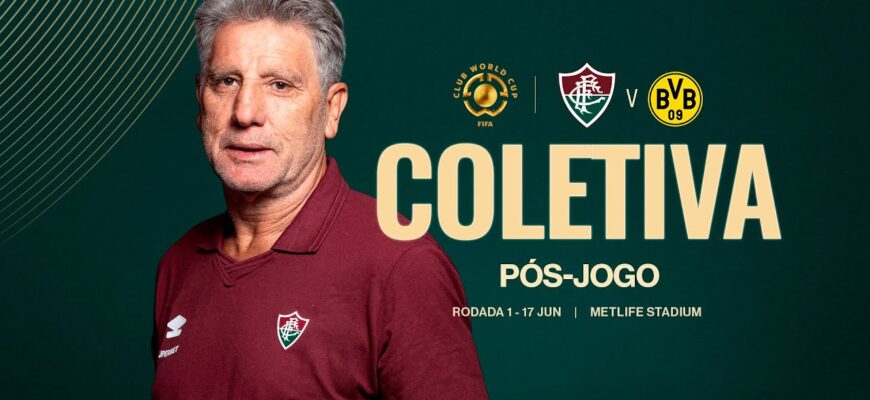In the high-stakes world of professional football, where immediate results often overshadow long-term planning, the integration of promising young talents is a delicate art. At Fluminense, a prominent Brazilian club, the spotlight has recently fallen on two such prospects: Paraguayan forward Rubén Lezcano and Uruguayan midfielder Joaquín Lavega. Despite significant investments and burgeoning reputations, both players remain on the fringes of the first team, a situation that has stirred considerable debate among the club`s passionate fanbase. Head coach Renato Gaúcho has now offered his candid perspective, shedding light on the strategic rationale behind their gradual introduction.
The Coach`s Calculated Approach
Following a narrow 1-0 defeat to fierce rivals Flamengo in the Brasileiro championship, Gaúcho faced the inevitable questions regarding Lezcano and Lavega. His response, delivered with the seasoned pragmatism of a manager who has seen it all, emphasized a philosophy of careful cultivation over rushed exposure. It`s almost as if he`s suggesting there`s a method to his perceived madness, a concept often lost in the immediate aftermath of a derby loss.
“When I arrived at Fluminense, both Lezcano and Lavega were considerably behind the other players,” Renato explained. “They are foreigners; they require adaptation. I endeavor to correct them almost daily. I recall having this discussion with the president upon my arrival, stating, `I will not initially utilize these two players because they require refinement.`”
This isn`t merely a case of players not being `good enough` to warrant a spot; rather, it`s a testament to the club`s — or at least the coach`s — commitment to holistic development. Throwing unready players into the cauldron of Brazilian top-flight football, especially after a series of defeats or in a heated derby, can be detrimental to their confidence and long-term prospects. As Gaúcho astutely noted, “The moment they are placed on the field, they will face scrutiny and are currently unprepared to deliver the expected response.” One could almost hear the collective groan from fantasy football managers as he spoke.
The Odyssey of Foreign Talent
Rubén Lezcano, acquired from Libertad in Paraguay for approximately $5 million USD, arrived with the weighty tag of being one of Paraguay`s most exciting footballing promises. Despite making ten appearances and accumulating 270 minutes on the pitch, he is yet to contribute directly to a goal. His journey at Fluminense exemplifies the common challenge faced by high-value young imports: translating raw potential into consistent senior-level performance, a process that rarely follows a neatly prescribed timeline.

Joaquín Lavega, a 20-year-old Uruguayan signed from Boston River, carried an even loftier pre-arrival reputation. In 2022, he earned a coveted spot on The Guardian`s prestigious “Next Generation” list, an annual compilation of the world`s most promising young footballers. The esteemed publication lauded Lavega as “a talented player who cemented his place in 2022 operating on the wings. He possesses a great left foot, and his pace and skill make him a very difficult opponent to face in a one-on-one situation. He is quick with the ball at his feet and a good passer.” Such praise, while certainly a feather in his cap, also creates an immense burden of expectation, a gilded cage of sorts for a young athlete.
Beyond the Pitch: The Unseen Adaptation
The concept of “adaptation” extends far beyond merely understanding tactics or physical conditioning. For foreign players, especially those from neighboring South American countries who might assume cultural similarities, the transition can be surprisingly complex. It encompasses:
- Language and Communication: Even within Portuguese-speaking Brazil, nuances and regional accents can pose initial challenges, making tactical instructions a potential game of charades.
- Cultural Immersion: Adapting to a new city, different social customs, food, and daily routines can be unsettling. It`s more than just a change of scenery; it`s a change of life.
- League Specifics: Brazilian Série A is known for its intensity, tactical fluidity, and often, less forgiving refereeing than some other leagues. The physical demands can be immense, requiring a rapid shift in play style.
- Team Chemistry: Building rapport with new teammates, understanding their playing styles, and finding a comfortable role within the team`s dynamics takes time. Football, after all, is a team sport, not a solo exhibition.
- Media and Fan Pressure: Brazil`s football media is voracious, and its fans are fiercely passionate. Every touch, every decision is scrutinized, a constant examination under a high-powered microscope.
Renato`s strategy, therefore, seems to be a measured one: protect the players from this intense environment until they are fully equipped to handle it. “They need to adapt better because, at the moment, if I put them on the field, they will be criticized and are not ready to give the answer,” he asserted. “So, little by little, they will receive opportunities, and then they will be more adapted, understanding how we work and knowing their teammates better. When opportunities arise, it is up to them.” A subtle hint that the ball, eventually, will be in their court.

The Virtue of Patience in a Demanding Sport
In an era where instant gratification is often expected, Renato Gaúcho`s stance serves as a reminder of the long game in player development. While fans naturally crave to see their expensive new signings and highly-touted prospects in action, a premature debut can derail a career before it even truly begins. The coach`s role isn`t just to win games, but also to nurture assets, ensuring they are not just physically ready, but also mentally robust enough to withstand the rigors of professional football, a task often more challenging than any tactical formation.
Fluminense, like many clubs, navigates the tightrope between appeasing an expectant fanbase and adhering to a sensible development pathway. The future of Lezcano and Lavega at the club hinges on this very balance. Will patience pay off, allowing these South American gems to truly sparkle in due course? Only time, and Renato`s continued careful management – perhaps with a dash of his characteristic irony – will tell.









